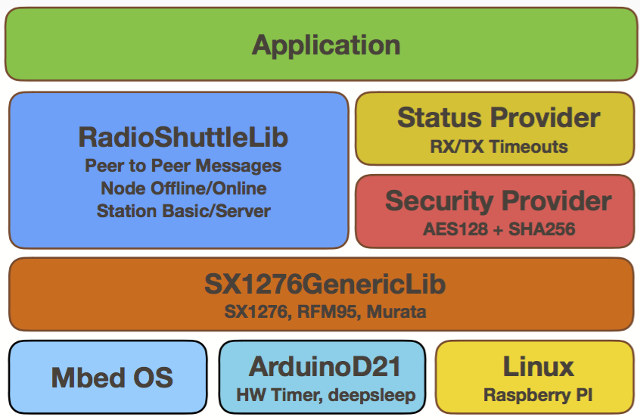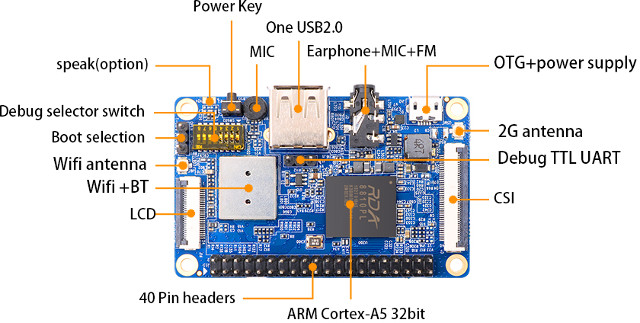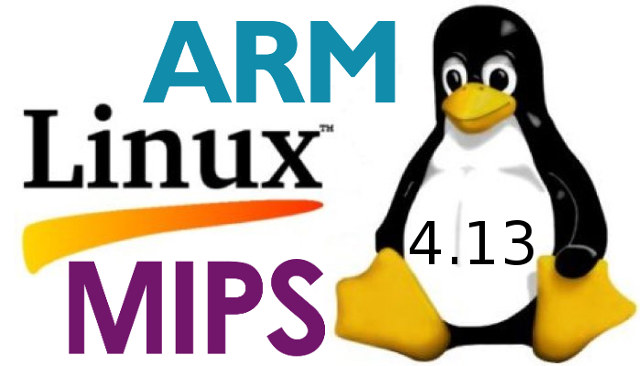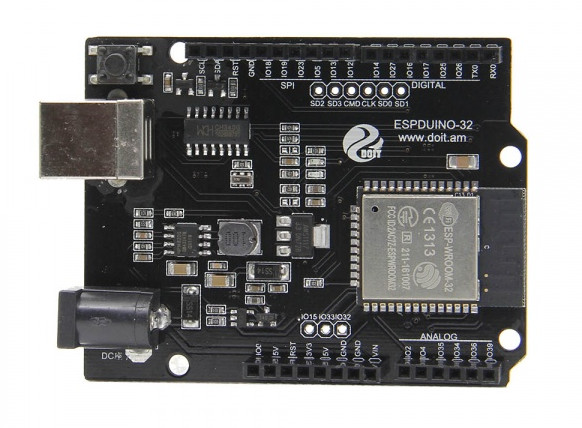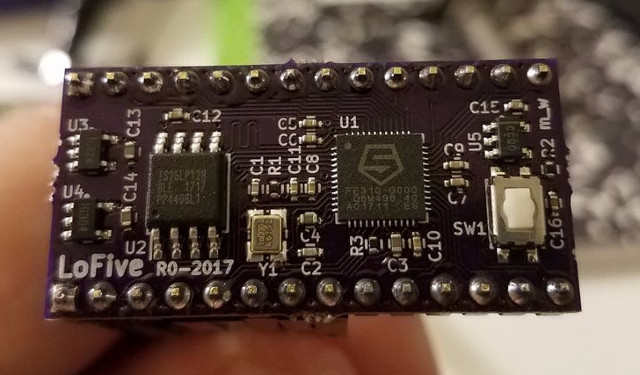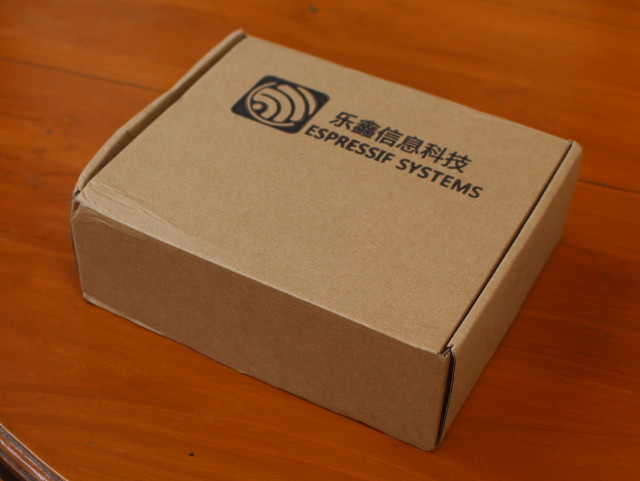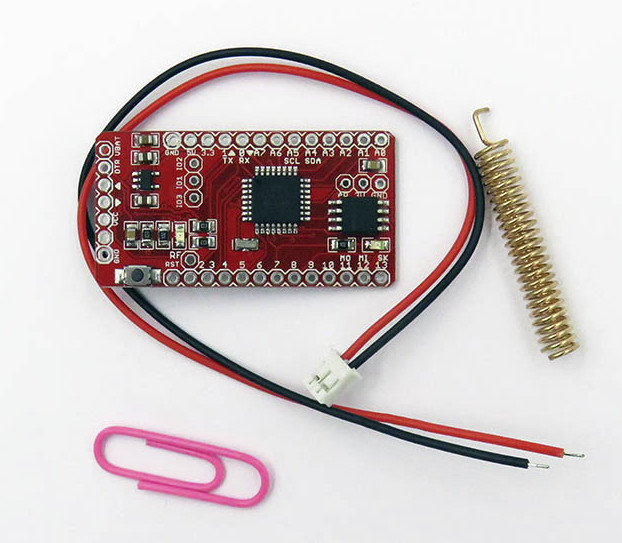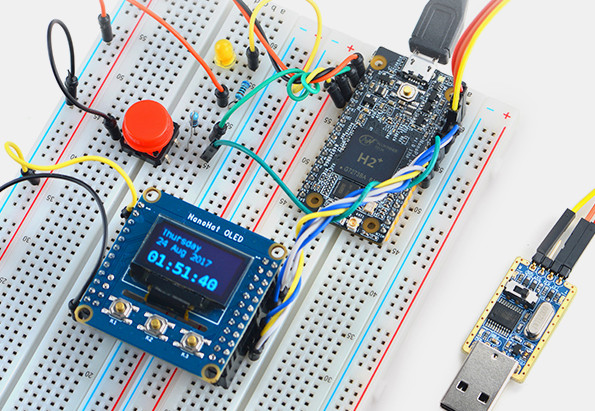LoRaWAN protocol is one of the most popular LPWAN standards used for the Internet of Things today, but some people found it “lacked efficiency, did not support direct node-to-node communication, and was too costly and far too complicated for many applications”, so they developed their own LoRa wireless protocol software called RadioShuttle, which they claim is “capable of efficiently sending messages in a fast and secure way between simple LoRa modules”. Some of the key features of the protocol include: Support for secure or insecure (less time/energy) message transmission, multiple messages transmission in parallel Unique 32-bit device ID (device number) per LoRa member, unique 16-bit app ID (program number for the communication) Security – Login with SHA-256 encrypt password; AES-128 message encryption Air Traffic Control – Nodes only send if no LoRa signal is active on that channel. Optimized protocol – Message delivery within 110 ms (SF7, 125 kHz, free […]
Orange Pi 2G IoT Board Can Now Boot Linux from NAND Flash
Orange Pi 2G IoT is a $10 development board with a 2G cellular modem that was launched last March. The board is based on RDA Micro RDA8810PL processor designed for cheap Android phones, but Linux support was also promoted, and an RDA8810 Android SDK was released in April. It was the first time RDA8810 was used in a development board, and unsurprisingly it was, and still is, a challenge to use such board, as software support is on-going… So people who purchased the board has troubles with controlling GPIOs, or booting Linux from the SoC’s built-in NAND flash, instead reverting to booting from a micro SD card. Luckily, Orange Pi forum’s user surfero75 worked on the latter, found a solution, and posted instructions in Spanish. He wrote those instructions leveraging the work done by Aib user, and I summarized the main steps below explaining how install and boot from NAND […]
Linux 4.13 Release – Main Changes, ARM & MIPS Architectures
Linus Torvalds has just announced the release of Linux 4.13 and a kidney stone…: So last week was actually somewhat eventful, but not enough to push me to delay 4.13. Most of the changes since rc7 are actually networking fixes, the bulk of them to various drivers. With apologies to the authors of said patches, they don’t look all that interesting (which is definitely exactly what you want just before a release). Details in the appended shortlog. Note that the shortlog below is obviously only since rc7 – the _full_4.13 log is much too big to post and nobody sane would read it. So if you’re interested in all the rest of it, get the git tree and limit the logs to the files you are interested in if you crave details. No, the excitement was largely in the mmu notification layer, where we had a fairly last-minute regression and […]
ESPDUINO-32 & Wemos D1 R32 ESP32 Boards Support (Most) Arduino UNO Shields
The compact ESP32 NodeMCU like board are great for many project, but in case you plan to leverage your existing Arduino shield, it’s more convenient to have a compatible board. We’ve previously seen Noduino Quantum board sold for 99 RMB on Taobao, and $25.90 on AnalogLamb, but doit.am has designed a cheaper model called ESPDUINO-32 that supports shields compatible with Arduino UNO, and sold for $13.73 on DealExtreme. ESPDUINO-32 board specifications: Wireless Module – ESP-WROOM-32 based on Espressif ESP32 dual core Tensilica LX6 processor with 802.11 b/g/n WiFi and Bluetooth 4.2 LE Expansion – Arduino UNO headers with SPI, I2C, digital I/Os, 1x analog input up to 3.2V, 5V, GND USB – 1x USB device port Misc – Button Power Supply – 5 to 12V input via DC jack or Vin pin Dimensions – 66 x 53.3 x 13.5 mm The board can be programmed with the Arduino IDE selecting […]
LoFive is a Tiny Open Source Hardware Board based on SiFive FE310 RISC-V Open SoC
Do you remember HiFive1? It’s an Arduino compatible board based on the SiFive FE310 open source RISC-V SoC. Michael Welling has now started working on LoFive board using the same processor, but in a much smaller & breadboard friendly form factor. LoFive board specifications: MCU – SiFive Freedom E310 (FE310) 32-bit RV32IMAC processor @ up to 320+ MHz (1.61 DMIPS/MHz) Storage – 128-Mbit SPI flash (ISSI IS25LP128) Expansion – 2x 14-pin headers with JTAG, GPIO, PWM, SPI, UART, 5V, 3.3V and GND Misc – 1x reset button, 16 MHz crystal Power Supply – 5V via pin 1 on header; Operating Voltage: 3.3 V and 1.8 V Dimensions – 38 x 18 mm (estimated) The board will be programmable with Arduino IDE + Cinco just like HiFive1 board. The board is also open source hardware, so beside the aforelinked info on Hackster,io, you’ll also find the KiCAD schematics, PCB layout, and […]
A First Look at ESP32 PICO Core Development Board Powered by ESP32-PICO-D4 SiP
Last week, I wrote about ESP32-PICO-D4 system-in-package (SiP) that contains ESP32 WiSoC, 4MP SPI flash, a crystal oscilloscator and some passive components in a single 7×7 mm package in order to allow smaller designs based on ESP32. The company noticed the post, and asked me whether I’d be interested in receiving “some development boards based on ESP32 PICO”, an offer hard to refuse :), and within a couple of days I received the package below. So I ended up with 10 identical development kits, the company probably thought it was no worth paying for DHL to only send one or two development boards… The boards may also be part of some contests… We’ll see 😉 So let’s take two, and have a closer look at “ESP32_PICO_Core_Board_V3″… It comes with two rows of 20 pins with access to all I/Os, and features three main chips: ESP32-PICO-D4 SiP, AMS1117 voltage regulator, and Silabs […]
$6.10 Loraduino Board Combines LoRa and Atmega328P MCU
We’ve previoulsy seen low costs SX1278 LoRa modules @ 433 MHz which you could connect to your own board, but Electrodragon is now selling Loraduino board with an Atmega328P MCU and SX1278 for just $6.10 / 5 Euros plus shipping, and using a layout similar to Arduino Pro Mini. Loraduino specifications: MCU – Microchip / Atmel Atmega328P MCU with Arduino pro mini bootloader Storage – 16Mbit SPI flash for data LoRa Semtech SX1278 IC with 433mhz, or 470mhz central frequency 10 km max range 20dbm max power rate (configurable by software) Tx current: 120 mA @ + 20 dBm; 90mA @ + 17dBm; 29mA @ + 13dBm Data Rate – 1.2K to 300Kbps with FSK; 18 bps to 37.5Kbps with LoRa Expansion SX1278 Lora: leadout for pins IO1, IO2, IO3 Atmega: 14x digital input/output pins (including 6x PWM outputs), 6x analog inputs (TBC) Misc – Programmable LED (D7), power LED, […]
$8 NanoPi Duo is a Tiny Breadboard Compatible Linux Board powered by Allwinner H2+ Quad Core SoC
It’s very easy to find breadboard compatible boards in the market with products based on Espressif chips such as NodeMCU or ESP32 boards, as well as OpenWrt board like Onion Omega2, or LinktIt 7688. However, it’s much more difficult to find powerful quad core boards in this form factor, but that’s exactly what FriendlyELEC has done with their NanoPi Duo board featuring an Allwinner H2+ quad core processor in a form factor slightly smaller than a Raspberry Pi Zero. NanoPi Duo specifications: SoC – Allwinner H2+ quad core Cortex A7 processor @ 1.2 GHz with Mali-400MP2 GPU @ 600 MHz System Memory – 256 or 512 MB DDR3-1866 SDRAM Storage – micro SD card slot, footprint for SPI flash Connectivity – 802.11 b/g/n WiFi (Allwinner XR819 module) with chip antenna, and u.FL/IPEX connector for external antenna USB – 1x micro USB OTG port Expansion headers – 2x 16-pin breadboard compatible […]


